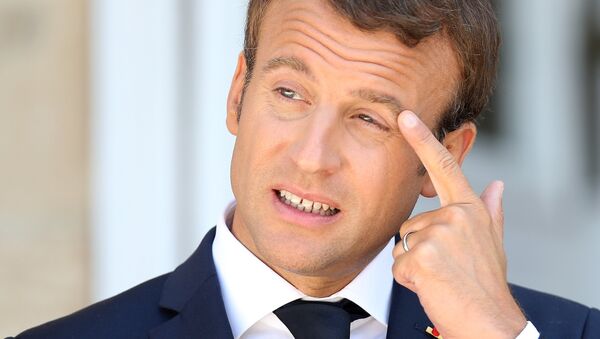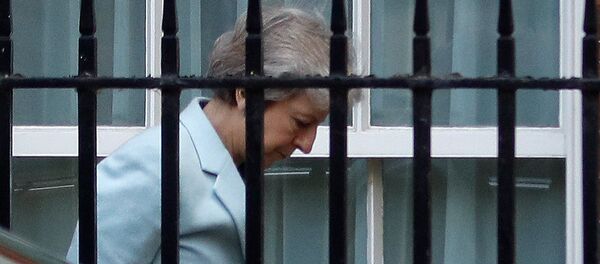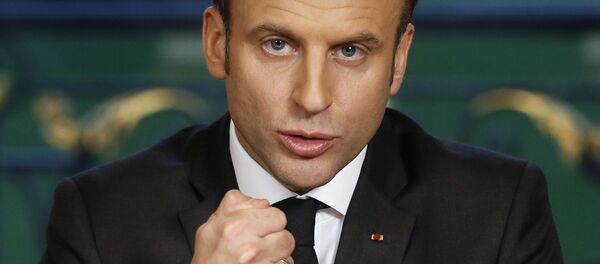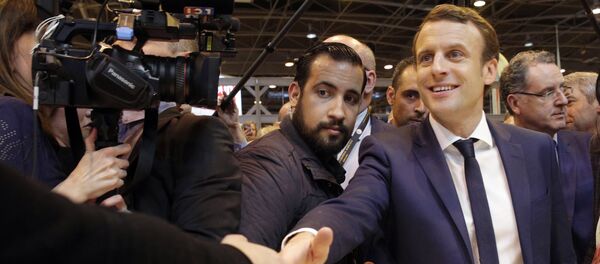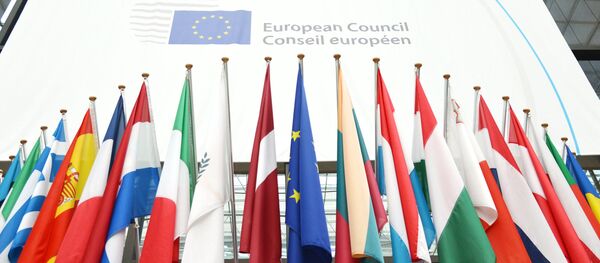In France, the president's rating has plummeted lately, down to 29 percent, which is his lowest result since he was elected in May 2017.
Coalition With the Left
The latest Odoxa study shows that 21 percent of the French would back the right-wing party of Marine Le Pen, National Rally (RN), in the election to the European Parliament, which is only 0.5 percent fewer than those who would support president Macron’s La Republique en Marche (LREM).
"Macron will be seeking to build a kind of progressive consensus in the middle and he might try to reach out to socialists. The old Socialist Party is still in existence, politicians are still there and the voters are still there. He will try and open things up to left-wing voters who are pro-European," Smith said.
READ MORE: 'There Is no Other Option': Iran to Speak With Trump Directly, Professor Says
The University of Nottingham expert is less certain about LREM's ability to join forces with Jean-Luc Melenchon, the leader of left-wing Unsubmissive France, whose "euro-skepticism is pretty firm."
"There might be some kind of broad coalition … It seems that there is a possibility to build consensus around the middle, around the center with LREM in the middle, reaching out to towards left-wing voters with promises of Europe that becomes more socially concerned. The great failure of Europe from the left-wing perspective is a failure to build a social Europe. By the left-wing parties, Europe is seen as a free market which has forgotten about the interests of the working class, of unemployed etc.," Smith said.
"He will want to try and do deals with pro-European parties, but they might decide they will be better off outside. The calculation other parties have to make is whether they will get above the threshold or is it better to be in a coalition with somebody else or is it better to stand by yourself. So there is a lot of calculations being done at the moment and a lot of that calculations may have very little to do with policy and may be much more driven by horse-trading," Smith said.
Alliance With the Right Complicated
Smith explained that Macron would want to go back to the idea he built his election campaign on — gathering the center-left and center-right in a sort of a progressive pro-European coalition.
READ MORE: Professor on French Interior Minister's Resignation: 'It's Perfectly Logical'
"There are some in the Republican rights who want to take them to a more euro-skeptical position, and then there are others, pro-European liberals and centrists who see themselves as much more pro-European… The ideal Macron position is that he would love to build a single list where LREM is the core, but where he goes back to the kind of origins of "macronism", the idea of being built around the alliance of center-left and center-right," Smith said.
However, the expert finds this unlikely.
"The big question is whether he can use from his perspective the issue of Europe to bring over the 'Macron-compatible' right in some kind of alliance and whether he can do it on the left," Smith said.
Competition for Euro-Skeptic Votes
"Le Pen will be thinking about two things: attacking the EU as an institution and Macron as a pro-European, but also she will be trying to distinguish her euro-skepticism, her sovereignty from Jean-Luc Melenchon. Although they are on the opposite ends of the spectrum, in political terms their electorates are not very different. There are a lot of left-wing communist voters in France, who stopped voting communists and vote for the RN," Smith said.
READ MORE: EU is Not Europe: Marine Le Pen Urges for Creation of Alternative Political Bloc
The expert added that some of these voters may gravitate back toward Melenchon.
Referendum for or Against Europe
"These European elections can be a sort of referendum for or against Europe. Macron wants to be the leader of the progressivists against populists, how he himself put it … Macron’s strategy is good — profiting from the fact that the German chancellor is weakened, profiting from the fact that there are not many other liberal pro-European politicians in power in Europe to present himself as the last guard staying against populists in the [EU] parliament and to mobilize pro-European electorate," Camus said.
READ MORE: France Wants to Further Develop Economic Cooperation With Russia — Ambassador
The expert believes that Europe will not be the same after the election to the European Parliament, scheduled for May 23-26, 2019.
The views and opinions expressed by the speakers do not necessarily reflect those of Sputnik.
